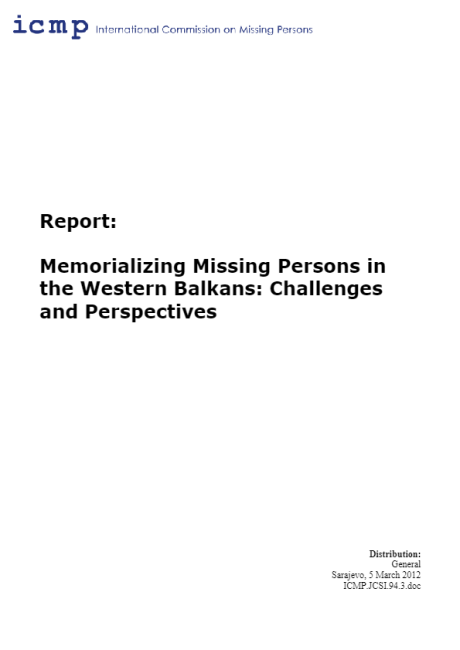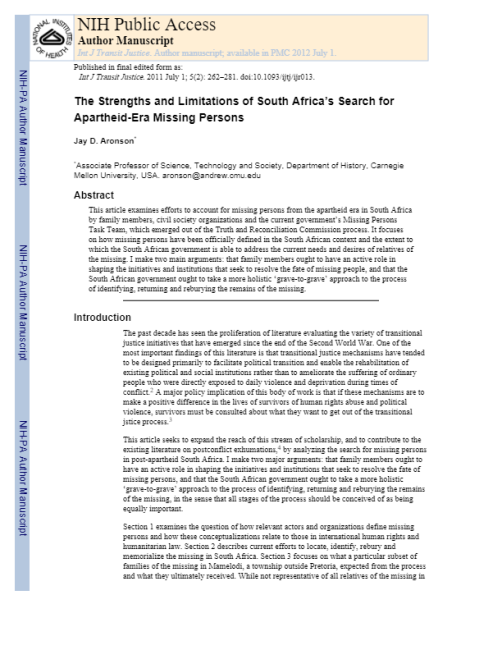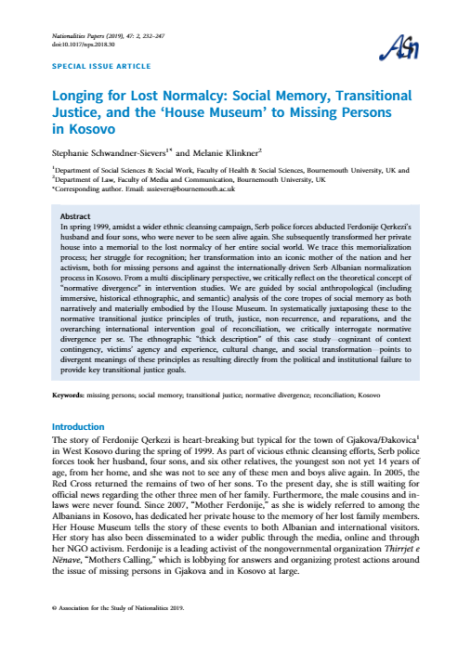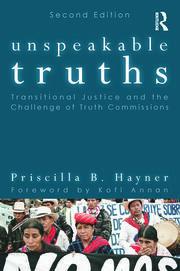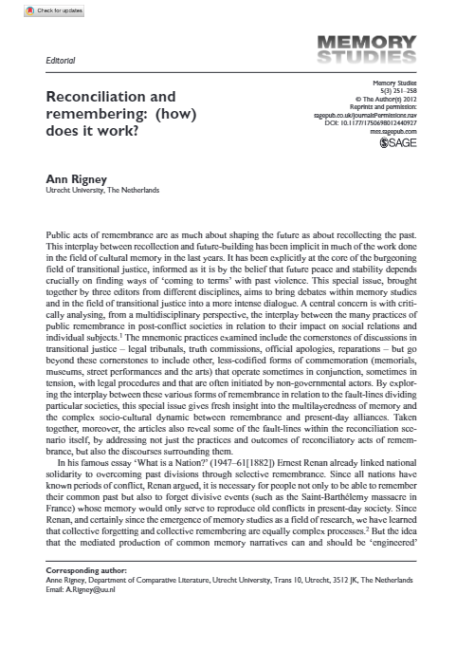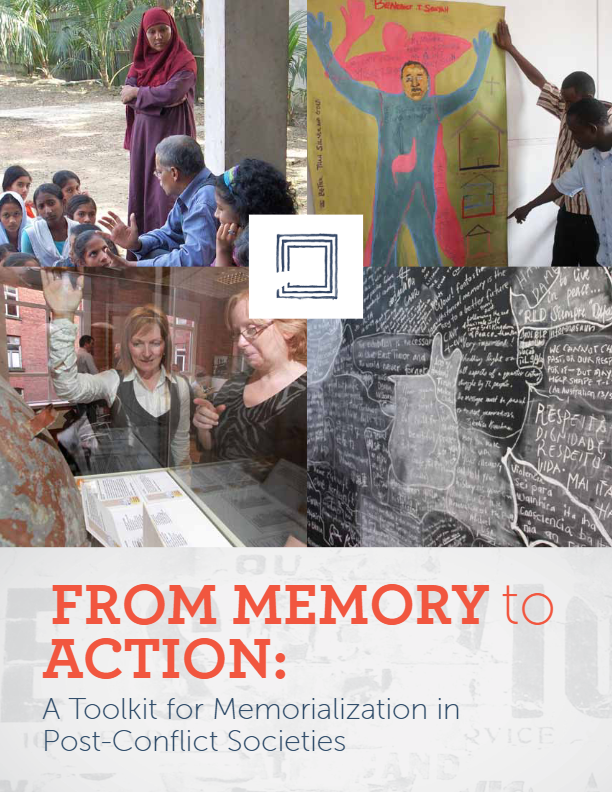
From Memory to Action: A Toolkit for Memorialization in Post-Conflict Societies
In all of our societies, we undertake memorial activities to preserve the historical memory relating to traumatic events that have taken place: usually conflicts, genocide, famines, the plague, the aftermath of a great humanitarian crisis etc. In doing so, we are confronted with a number of crucial questions: “What role does memory play in the framing of contemporary debates in our society? Should it necessarily play a role? What is the role and impact of Memorials in Social Reconstruction and Transitional Justice; how can these memorials advance reconciliation and social reconstruction among former enemies or how can we ensure that they do not have the effect of preserving and even strengthening the divisions that have led to violent conflict? What memories do we seek to preserve and how? In whose name do we act? How much memory is useful, particularly in cases of mass murder and genocide? How can we limit the manipulation of public memory by political actors for their own interests?” The following manual does not claim to offer answers to many of these questions but by drawing on the work of Sites of Conscience, provides inspirational and innovative examples to deal with the challenges posed by some of these questions—examples that highlight the relevance of memory in the post-conflict world and ways in which societies can move from memory to action!


